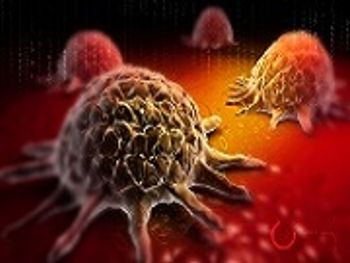
Tailored dose-dense chemotherapy did not statistically improve recurrence-free survival in breast cancer patients.

Tailored dose-dense chemotherapy did not statistically improve recurrence-free survival in breast cancer patients.

Top news of the week in oncology and cancer drug development.

A more personalized surveillance approach may help catch melanomas in high-risk patients.

Gene therapy stimulates blood vessel growth in the heart to avoid cancer drug side effects.

Targeting a certain antioxidant protein reduces the aggressiveness of triple-negative breast cancer and increases its sensitivity to conventional anti-cancer drugs.

IL-1 antagonists are traditionally used to treat patients with rheumatoid diseases.

Targeted personalized therapy in patients with diabetes can reduce the risk of developing cancer.

Surprising findings from a study revealed that losing weight may not help protect against liver and colon cancer.

The imCORE Network Aims to advance cancer immunotherapy drugs.

RAS proteins inhibited by the newly created NS1 monobody.

Two existing drugs, Gemcitabine and DON, target the degradation of nucleotides in the liver.

Top news of the week in oncology and cancer drug development.

Promising data on pediatric relapsed/refractory acute lymphoblastic leukemia to be presented.

Top news of the day from across the health care landscape.

Collaboration will examine potential opportunities for combining daratumumab and carfilzomib for the treatment of cancer.

Combination immunotherapy more successful in treating advanced skin cancer.

Ibrance has received approval from the European Commission to treat metastatic breast cancer.

Top news of the day from across the health care landscape.

CD98 molecule could be a potential therapeutic target in AML.

Comparing healthy and cancerous cells from the same individual could allow for a better understanding of translocations involved.

Foundation Medicine and Sarah Cannon Research Institute work together to increase access to clinical trials for personalized oncology treatments.

Sofosbuvir adherence in hepatitis C patients impacted by a mental health disease.

Opdivo is approved for metastatic melanoma, non-small cell lung cancer, renal cell carcinoma, and classical Hodgkin lymphoma.

A newly identified metabolic fingerprint of colorectal cancer may serve as a future diagnostic tool in early detection.

Research evaluates sofosbuvir use in hepatitis C patients with a mental health disease.

A 2-year study will examine the effectiveness of advanced MRI to determine response to breast cancer treatment.

The companies plan to collaborate on clinical trials of a novel combination therapy for multiple myeloma.

Interfering with energetic metabolism may stop glioblastoma growth and recurrence.

Rehabilitation with the help of the internet ameliorates life quality and side effects in women with breast cancer.

Having multiple sclerosis may not increase the risk of breast cancer in women.